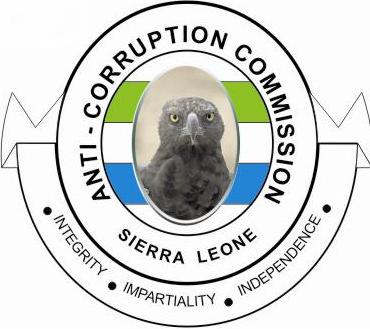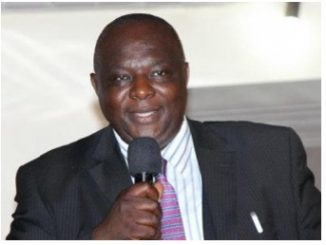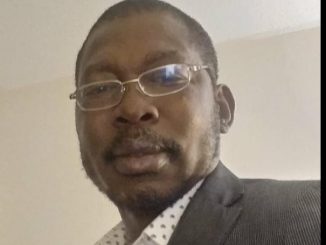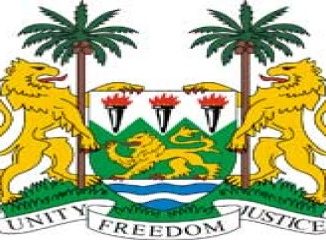
ANTI-CORRUPTION COMMISSION
MENA HILLS, MAKENI
SIERRA LEONE, WEST AFRICA
30th April 2015
NEWS ITEM
ACC CALLS FOR INTEGRATION OF ANTI-CORRUPTION INITIATIVES INTO THE CIVIL SERVICE
Commencing its nationwide advocacy meetings with senior and middle level civil servants on mainstreaming, the Deputy Director of Public Education and Outreach Department of the Anti-Corruption Commission (ACC), Mr. Patrick Sandi has called on Ministries Departments and Agencies (MDAs) in Port Loko District to mainstream anti-corruption measures in their various operations. Mr. Sandi said this at the Port Loko District Council Hall on Wednesday 29th April 2015 at the first of several similar meetings planned across the country by the Commission in the next two weeks.
Explaining the purpose of the meeting, the Deputy Director intimated participants that among numerous approaches and polices in compliance to general best practice, the ACC has made it a priority to advocate for the mainstreaming of anti-corruption initiatives into MDAs. He reiterated the Commissioner’s vision of having anti-corruption measures integrated into all MDAs as a new strategy to fight corruption through the institutional approach.
Mr. Sandi summarized the purpose of the countrywide meetings into three main objectives. These include enhancing and improving the capacity of civil servants in dealing with AC measures, heightening awareness on AC issues and enabling participants take practical steps in mainstreaming AC strategies in their operations. The Deputy Director specifically encouraged MDAs to introduce anti-corruption initiatives such as robust codes of conducts for employees, measurable appraisal systems or performance contracts, sound human resource polices, sustained integrity pacts and integrity testing, adherence to strict procurement guidelines and formidable internal audit systems.
While formally opening the meeting, Mr. Ibrahim Kargbo, ACC Regional Manager, North, who also doubles as Chairman, reminded participants of President Koroma’s clarion call for zero tolerance on corruption. He reasoned that in order to reduce cost and ensure adequate collaboration and partnership in the fight against corruption, giving the cross-cutting nature of AC interventions, it was necessary to move away from stand alone anti-corruption programmes where the ACC is perceived as the sole champion in the fight. “It was based on this backdrop” Manager Kargbo further reflected, “that the Commissioner, Mr. Joseph Fitzgerald Kamara commissioned the nation-wide advocacy to top civil servants for the integration of AC measures as an imperative undertaking for the Commission.”
In his explanation of the nature of the programme, Head of Public Education Unit, Mr. Michael Sesay indicated that the mainstreaming project is funded by the European Union as a complement to the no-bribe campaign. Mr. Sesay explained that the need for devolving the fight against corruption and the tremendous benefits this will bring to MDAs and the nation as a whole.
Another pertinent aspect of the meeting was a session on the basic tools in monitoring GoSL projects which was delivered by Mr. Moses Bangura, Monitoring Officer, ACC. Mr. Bangura pin-pointed that without proper monitoring, effective and efficient accomplishment of project objectives is doomed. He urged participants to develop functional monitoring and evaluation systems that can be used to prevent and eliminate corruption in their institutions. Mr. Bangura ended the session by insisting that Monitoring and Evaluation Officers should not be seen as Police Officers but as a necessary arm that enhances reliable measurement of strength and weaknesses in the organization, without which effective management is impossible as:”What cannot be measured cannot be managed”, he emphasized.
Other sessions were done on the role of civil servants in the fight against corruption, Offences in the 2008 AC Act and how to report corruption to the ACC. The meeting ended with a plenary session where participants expressed satisfaction on the contents of the presentations, remarking that the meeting was far more than an advocacy meeting but trainings on how to integrate anti-corruption initiatives into the civil service.



